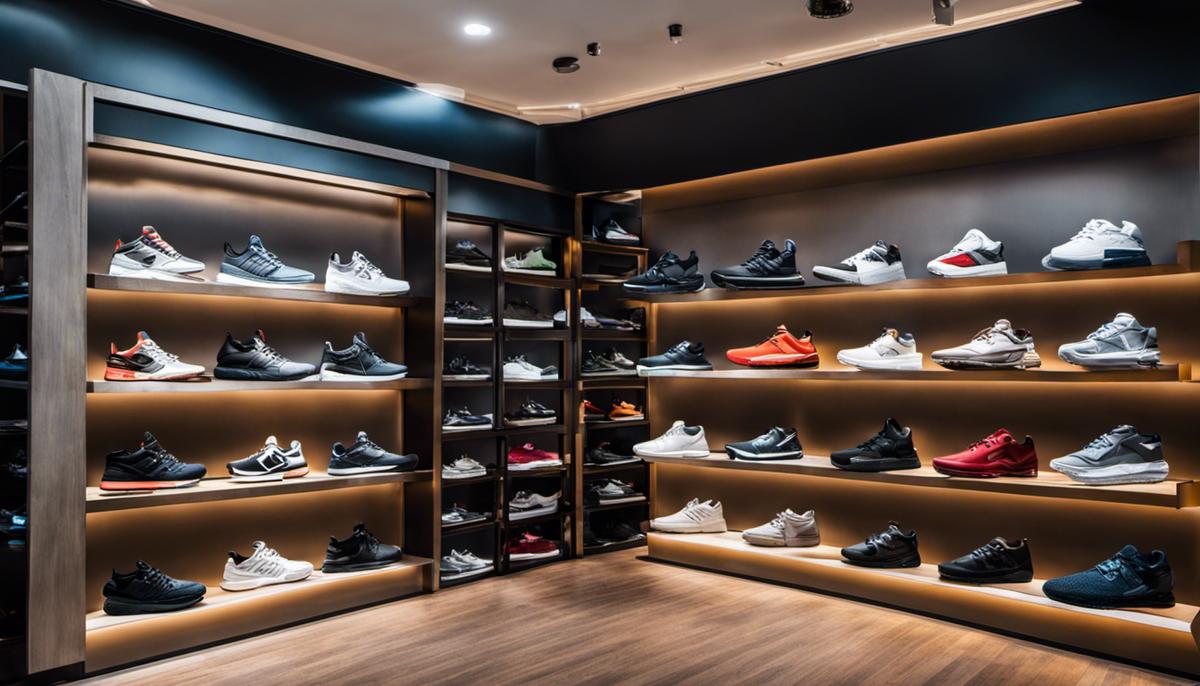BetterYouJourney.com is a participant in the Amazon Services LLC Some of the links in our posts are affiliate links. Click here to see full Disclosure.
The world of business and entrepreneurship has been revolutionized by the reselling market, opening up countless opportunities to generate income from unique and innovative angles. Whether you’re a thrifter with an eye for hidden treasures or a tech-savvy digital entrepreneur, there’s an ever-evolving reselling venture that could just be your gateway to success. This essay details ten top reselling business ideas, from the tangible products of thrifting, collectibles, and real estate, through the digital realm of e-books, music, and web domains, and even to the niche markets of sneakers, furniture, and books. Each with its own promise of profitability and challenging in its unique way, these reselling enterprises invite you to create wealth while exploring your interests and specialties.
Thrifting and reselling
Thrifting and Reselling: A Rewarding and Profitable Business Idea
Thrifting and reselling is gaining popularity as a rewarding and profitable reselling business idea. It involves purchasing items at drastically reduced prices from thrift stores, estate sales, or garage sales and then reselling them for a profit. This business model blends entrepreneurship and sustainability, promoting the recycling and reuse of items, subsequently reducing waste.
Understanding the Market for Thrifted Items
One of the essential aspects to be successful in this business is understanding the market, the demand, and the value of different types of items. Knowledge about vintage clothing, antiques, rare books, and other unique finds often found in thrift stores can help spot hidden treasures that could yield high profits when resold.
Sourcing Products
When sourcing items to resell, thrift stores and estate sales are the most common starting points. Additionally, flea markets, garage sales, and online marketplaces can also be great options for sourcing unique, cheap items for the thrift reselling business. The trick lies in identifying underrated items that have the potential for a high resale value.
Platforms for Reselling
Several platforms exist where resellers can list their thrifted items. For clothes and fashion-related items, platforms like Poshmark, Depop, and Mercari are popular. For antiques, vintage, and collectible items, eBay remains a strong contender, and Amazon is ideal for books and new items. Before deciding on a platform, it’s essential to understand the target audience and where they are most likely to shop.
Profit Margins
Profits from thrift reselling principally depend on simple economics – buying low and selling high. That’s where the basic business expenses need considering, including the cost of the item, any repairs or cleaning required, listing fees, shipping costs, and the time spent sourcing, listing, and shipping items.
Upcycle for Added Value
Some thrift resellers add value to their finds by repairing or upcycling them. This can include cleaning and repairing vintage jewelry, restoring antique furniture, or tailoring vintage clothing to modern tastes. This upcycling can greatly increase an item’s value, turning a small investment into a sizable profit.
Thrifting and Reselling: A Positive Contribution
Thrifting and reselling has the potential to be not only a lucrative business venture but also one that contributes positively to the environment. It encourages the cycle of use and reuse, which reduces wastage and promotes a more sustainable way of shopping.

Reselling Digital Products
In an increasingly digital era, the income potentials for reselling digital products have grown significantly. This venture is attractive to many entrepreneurs as it requires minimal overhead costs compared to other businesses. For beginners, the setup cost is quite minimal since most transactions occur online and don’t require physical stores. Products can be anything from e-books to software applications, and can be created by oneself or purchased from other creators.The consumption of digital content has skyrocketed, opening doors for entrepreneurs. The increased use of e-learning platforms, the popularity of digital arts, and businesses transitioning to digital means have fueled the demand for digital products. Not to mention the global reach you can achieve with digital products compared to physical ones. The market is not restricted by geography, giving your business the potential to reach millions of customers around the world.The first step in reselling digital products is to identify the type of digital product that you want to sell. E-books, courses, music, digital art, and software are all viable options. You can either create these products yourself or buy them from elsewhere. The latter option requires a thorough understanding of copyright laws to ensure that you are permitted to resell the goods.
You’ll need a reliable online platform to host your products for sale. Various e-commerce platforms are available, many of which offer options specifically tailored to digital goods. Your chosen platform should have a secure payment system and an automatic distribution system for delivering digital goods to customers after purchase.Once your digital store is up and running, it’s time to attract customers. Effective marketing strategies play a big role in the success of any business, and it’s no different for reselling digital products. Consider using social media platforms, email marketing, blogging, and advertising to engage with potential customers and drive traffic to your online store.When setting up your digital reselling business, make sure to familiarize yourself with copyright laws and other legal considerations to avoid falling into legal disputes. You’ll want to verify that you have the right to resell all of the products you offer, particularly if you didn’t create them yourself.Reselling digital products is a promising business model with its potential for high profitability and minimal overhead costs. However, like any business venture, it demands dedication, a thorough understanding of the market, and an effective marketing strategy.

Selling Collectibles
Venturing in the world of collectibles
can lead to a successful reselling business due to the high demand and potential value of these cherished items. Such items can include vintage comic books, antique dolls, autographed memorabilia, and even seemingly everyday objects that have unique historical or cultural significance. These artifacts are often prized by collectors, and while their true worth can fluctuate with supply and demand, the value of a truly rare find can reach sky-high prices.
It’s essential to cultivate specialist knowledge
about whatever type of collectible you decide to trade in. Knowing the difference between a rare specimen and a common one, and being able to accurately judge its condition entails experience, research, and a keen eye for detail. Websites, books, and collectors’ forums can serve as a goldmine of information. Also, find reputable graders and appraisers can help determine the authenticity and value of your items.
Sourcing Collectible Items
Finding valuable pieces can be a treasure hunt of sorts but thankfully, there are several avenues you can explore. The most common places to find collectibles are thrift shops and garage sales, where you may chance upon undervalued items. Attending estate sales and auctions can also prove to be lucrative, as these are often venues where rare items are sold. When it comes to online, there are several marketplaces to consider, with eBay being one of the go-to gigs because of its wide reach and volume of trading daily.
Reselling collectibles online also gives you the advantage of reaching a wide audience. You’re no longer limited to the collectors in your area; you can now reach collectors from around the world. Make sure to represent your items accurately with clear, high-quality photos and detailed descriptions to attract potential buyers.
Building Your Network
Having a broad network of fellow collectors can provide a lot of benefits in the collectibles market. Fellow enthusiasts can offer advice, share sources of items, and may even become customers. Don’t be afraid to engage in collectors’ groups either physically or virtually. These are avenues to discover collections, swap, compare pieces, and get insider tips.
Remember, reputation is everything in the world of collectibles. Always be honest about the condition and origin of your items. Honesty will not only earn you respect among other collectors, but it will also help you command higher prices and repeat business.
Shipping and Handling
Lastly, properly storing and shipping your collectibles is crucial. Keep in mind that these items are often delicate and prone to damage. Proper packaging will maintain the item’s condition and ensure that it reaches its new home safely.

Dropshipping
Taking the Leap into Dropshipping
Dropshipping is an innovative e-commerce strategy that lets you dabble in product sales without having to hold inventory. It centralizes on setting up an online storefront, choosing from a variety of products sold by manufacturers or wholesalers, and essentially re-selling them to your own customer base.
One major advantage of dropshipping is that it spares you the high overhead costs and initial investment often associated with starting a traditional retail business. Without the obligation to stock merchandise, storage space becomes an obsolete concern. This gives you the flexibility to operate your business from virtually anywhere.
Furthermore, the range of saleable products in dropshipping is virtually endless, allowing you to pivot your offerings as often as you’d like, based on your target market’s trends and demands. This kind of flexibility allows you to keep your online store updated and relevant, increasing the potential for repeat customers and brand loyalty.
Striking it big with Dropshipping
However, there is a caveat to the many conveniences of dropshipping. The business model relies heavily on supplier reliability. As you, the retailer, don’t actually hold inventory, the responsibility of supply and delivery rests largely on the manufacturer or the wholesaler. This essentially means an intense dependence on third parties who you hold agreements with.
Therefore, to run a successful dropshipping business, one must place a strong emphasis on communication and coordination with suppliers. Regular follow-ups, clear communication of expectations, and establishing contingency plans for potential mishaps are all an essential part of the process.
Furthermore, dropshipping is not immune to potentially hampering issues such as shipping delays, packaging errors, or supplier stock-outs which you will have little control over. Hence, always incorporating a healthy buffer for such unforeseen interruptions into your business strategy will save you from customer grievances and potential dips in trust.
Despite these challenges, dropshipping can offer an accessible route into running an online business. It just requires a careful blend of supplier relationship management, trend analysis, and patience to build a successful and profitable dropshipping business.

Photo by glenncarstenspeters on Unsplash
Flipping Real Estate
Flipping real estate
Flipping real estate is a popular concept that revolves around the process of buying, improving, and selling properties for a profit. It’s an enticing venture that often pays off handsomely, but requires significant upfront investment.
To get started in the real estate flipping business, an understanding of the real estate market is invaluable. This knowledge can mean the difference between a successful flip and one that leaves your wallet empty. Knowing when and where to buy properties, and at what price, can give you an edge over your competitors.
Upsides and Downsides of Flipping Real Estate
Rewards can be substantial in flipping real estate. The renovations you implement can greatly improve the property’s value, allowing you to sell at a higher price. Moreover, the satisfaction of bringing a derelict or rundown property back to life can be a reward in itself, not to mention the skills you’ll acquire along the way. The downside, however, is that costs can escalate quickly and an unsold property can quickly become a financial drain.
Selecting the right properties is a crucial part of the process. It’s important to avoid properties that need overly expensive repairs or are in less desirable locations. Having an idea of what buyers look for in a home can help in choosing properties with the best potential for profits.
Renovation and Remodeling: The Make or Break Point
The remodeling stage involves fixing up and improving the property to increase its market value. This might involve cosmetic updates like painting and landscaping, or more extensive renovations like redoing kitchens and bathrooms. One must be careful to strike a balance between improving the property and keeping costs under control. Overcapitalizing can leave you out of pocket when it’s time to sell.
Flipping real estate isn’t for everyone. It requires hard work, patience, a good sense of the real estate market, and sometimes a little bit of luck. Yet, for those who get it right, the profits can be substantial, making it a rewarding and worthwhile venture for the savvy and spirited entrepreneur.

Reselling Sneakers & Streetwear
The reselling of sneakers and streetwear
The reselling of sneakers and streetwear has emerged as an increasingly profitable business venture. This is largely due to the skyrocketing popularity of these items, which are often released in limited quantities, thus creating a competitive and high-demand market. As a reseller, you would be responsible for acquiring these sought-after items at retail price and later selling them at a significantly marked-up cost due to their exclusive nature and high demand.
A prime example of this is the world of sneaker reselling
A prime example of this is the world of sneaker reselling, which has burgeoned into a billion-dollar industry. Certain sneaker releases, particularly those associated with high-profile collaborations or limited edition drops, can sell for multiple times their retail price in the resale market. Rare sneakers can turn a remarkable profit for those who have a keen eye for what will be coveted.
This business model functions similarly within the streetwear industry
This business model functions similarly within the streetwear industry. Popular brands such as Supreme, Off-White, and Bape often release products in limited quantities and collaborations with artists or other brands. These pieces frequently sell out in minutes, driving up their resale value exponentially.
Knowledge and Networking are Paramount
It’s important to note, however, that success as a sneaker or streetwear reseller is not guaranteed or inherent. A deep understanding of current trends and releases, as well as a robust network, are paramount. Resellers must stay on top of release dates, brand collaborations, and general product news to know when and where to buy these hot commodities.
They also need to stay connected with fellow resellers, potential buyers, and even brand representatives for insider information. Connections can provide tips about upcoming releases and where to acquire items that will fetch the greatest profit.
Furthermore, the business of reselling is not confined to a local sphere
Furthermore, the business of reselling is not confined to a local sphere. Many resellers expand their reach globally, capturing the international demand for certain brands and styles. This type of scale can significantly heighten profit margins, making the business of reselling sneakers and streetwear a potentially lucrative venture for those with the right savvy, resources, and connections.
Pressing ahead, it is expected that the sneaker and streetwear reselling industry will continue to gain momentum
Pressing ahead, it is expected that the sneaker and streetwear reselling industry will continue to gain momentum. Driven by the increasing social status attributed to owning exclusive items, and the thrill of the chase for acquiring them, customers from around the globe are fueling this profitable market. This provides a unique business opportunity for those canny enough to leverage it.

Furniture Flipping
Furniture flipping, or the art of restoring and reselling used furniture, is an excellent business venture for those with an artistic flair and skilled hands. This innovative reselling idea involves hunting for antique or old furniture pieces, giving them a makeover, and reselling them at a profit. The excitement lies in the transformative process, where creativity can breathe a new life into a tired-looking piece of furniture.
The Art of Spotting Potential
Being savvy in sourcing quality furniture is imperative in the furniture flipping business, as the buying price often dictates the profitability of the deal. Thrift stores, yard sales, auctions, and online marketplaces, such as eBay or Craigslist, are popular sourcing spots. The key is to harness the ability to see past the current condition of the furniture and envision its potential.
Restoration and Refinishing
Once the piece is sourced, it needs a touch-up to increase its resale value. This often includes refreshing the upholstery, sanding down rough surfaces, and applying a new coat of paint or varnish. Attention to detail and creativity come in handy in this stage, as consumers crave unique furniture that stands out and tells a story. The goal should be to revamp the furniture piece without compromising its original character and charm.
Considerations of Space and Equipment
However, it’s essential to note that furniture flipping demands specific resources. Firstly, a vehicle large enough to transport furniture pieces is necessary. Pick-up trucks are often the transportation mode of choice. Next, one needs a dedicated space like a garage or workshop for refurbishing. The working space needs to be substantial enough to accommodate not only the furniture but also the essential tools and equipment.
Market Research and Business Strategy
Beyond the hands-on restoration work, a successful furniture flipping business requires a solid reselling strategy. Correct pricing, quality product images, and engaging product descriptions can significantly increase the chances of a sale. Online platforms like Etsy, eBay, or even a dedicated business website can be utilized to reach a wider audience. Local flea markets, trade shows, or consignment stores are also effective channels to sell refinished furniture.
Furniture flipping, with its unique blend of creativity and entrepreneurship, is an appealing business endeavor. Though it might demand certain investments initially, the financial and creative rewards make it a worthwhile venture. Understanding the market and honing restoration skills could ultimately transform this reselling business from a side hustle into a thriving full-time job.

Book Reselling
In today’s internet-driven world, opportunities for book reselling have expanded greatly.
Entrepreneurs with a passion for reading can turn profit from used books, rare first editions, and even textbooks through online marketplaces like Amazon, eBay, or AbeBooks. This business model offers a chance for blending passion and profit, as it requires extensive knowledge about book values and the book market.
Book reselling can be a treasure hunt of sorts.
Success in this field often begins at your local garage sale, library sale, estate sale, or even thrift stores. The key is to know the worth of a book before you purchase it. First editions and rare copies of books are likely to fetch a higher price, as are textbooks, which are often in high demand but pricier when bought new.
Learning to identify a book’s worth involves getting acquainted with the book market.
Certain genres and authors may be more lucrative than others. For instance, textbooks or materials for higher education courses can be a goldmine – these tend to be more expensive and students are always looking for affordable options.
Besides traditional marketplaces like eBay and Amazon, specialized platforms such as AbeBooks are gaining popularity among book resellers.
This platform specializes in rare and collectible books, allowing resellers to reach the right kind of audience. Collectible comic books, a niche market, can also garner high returns if in good condition and of a sought-after edition or series.
While the entry barrier to book reselling is relatively low, to be successful, one needs to stay updated on market trends and demands.
Follow book reviews, keep an eye on bestseller lists, and interact with other book enthusiasts to know what’s “hot”. Rare first editions and signed copies of books often appeal to collectors and are worth investing in if you come across them.
Of course, book reselling is not just about the money.
It’s a business for people who love books – people who understand their intangible value. With the right strategy, this business model can be a rewarding way to share your love of literature while making a profit.
Lastly, consider leveraging social media to reach a broader audience.
Platforms such as Instagram and Facebook are perfect for showcasing your collection and attracting potential buyers. Make sure to deliver a great customer experience to build a reputation and create repeat customers. This is how a hobby can turn into a profitable book reselling business in no time.

Flipping Cars
The concept of flipping cars
The concept of flipping cars entails buying used vehicles at a lower price, fixing them up, and then reselling them at a profit. This is a viable business idea for someone with an excellent knowledge of cars and mechanics, as they can use their expertise to increase the value of a car significantly before selling it. This can lead to substantial profits, making it well worth the investment.
Starting a flipping cars business
When starting a flipping cars business, one fundamental consideration is the space for storage, repairs, and display. You need a safe place to store the cars you’ve purchased, somewhere to repair them, and ideally a place to exhibit them for potential buyers. This could be a commercial lot if you’re planning a large operation, or even a home garage for a smaller start-up venture.
Although the cost for this necessary business space might seem like a significant financial hurdle, keep in mind the potential for return on investment. Even after costs for repairs and renovations, a flipped vehicle can often be sold for a healthy profit.
Need for A Dealer’s License
However, going into the flipping cars business usually requires acquiring a dealer’s license, which is a requirement in most U.S. states for individuals or companies that sell more than a specific amount of cars per year. The exact number can vary between states, so it’s crucial to research and understand the licensing laws in your particular region.
Getting a dealer’s license can be a rigorous process, which usually involves filling out an application form, passing a background check, and paying a fee. Some states may also require you to carry dealer insurance and attend a pre-licensing seminar.
Despite these tedious procedures, holding a dealer’s license comes with various benefits. You can attend dealer-only auctions, potentially allowing you to snatch up used vehicles at low prices. It also allows you to sell an unlimited number of cars, which is an invaluable advantage if you plan to expand your business in the future.
In essence, the trade of flipping cars
In essence, the trade of flipping cars can be a profitable reselling business idea, provided you have good knowledge of cars and mechanics, along with the necessary business requirements including space and a dealer’s license. It’s a hands-on business that can generate significant income when done right, and can be rewarding for anyone with a passion for vehicles.

Reselling Web Domains
For those looking to enter the world of digital entrepreneurship, reselling web domains is a burgeoning business idea.
The concept is relatively straightforward: purchase a domain name with potential or overlooked value, and then sell it to the highest bidder.
This approach to business largely relies on anticipation of future trends and research into what kind of online space may be sought-after in the years to come.
Web domains can range from generic, high-traffic terms to more niche-specific search phrases that could resonate with a particular target market.
The price point for initially purchasing a domain can also vary, making this business venture accessible across multiple budgets.
What’s most important in this venture is understanding the potential value a certain domain might represent to a specific industry or company.
A note of caution: Domain flipping is not for the risk-averse.
It’s a somewhat speculative business, as it’s impossible to predict with absolute certainty which domains will be in high demand.
An entrepreneur must be willing to spend the time researching trends, keywords, and internet usage patterns.
Furthermore, acquiring domains with potential means competing against others with the same goal.
In the reselling of web domains, patience is key.
Unlike physical products that might turn a quick profit, domain names may require a longer investment horizon.
A cleverly chosen domain today might not reach its full monetizable potential for a few years.
That said, when the right buyer comes along, the return on investment can be substantial.
Many successful domain flippers also highlight the importance of customer relationships and networking in this line of business.
Building connections with prospective buyers and other domain flippers can help you close sales more efficiently and potentially lead to partnerships.
Becoming part of online communities and forums focused on domain flipping can also provide valuable insights and tips.
In summary, for those with the right foresight and a knack for market trends, domain flipping offers a unique, profitable, and flexible business opportunity in the digital age.
However, like any other venture, it requires time, effort, research, and a tolerance for risk.

The fascinating world of reselling can be your platform for turning passions into profit. Whether you choose to immerse yourself in the world of thrifting, delve into the realm of digital products, become a connoisseur of collectables, take the plunge into property flipping, or explore any of the other intriguing avenues detailed here, there’s a potential business venture waiting for you. Armed with enthusiasm and industry knowledge, the right blend of entrepreneurship and craftsmanship can turn these reselling spaces into goldmines of opportunity. So go ahead, venture into the world of reselling and let it be the launchpad to your prosperous journey in the world of business.







